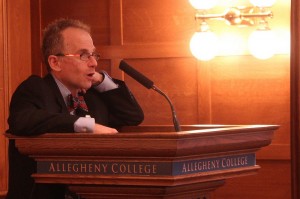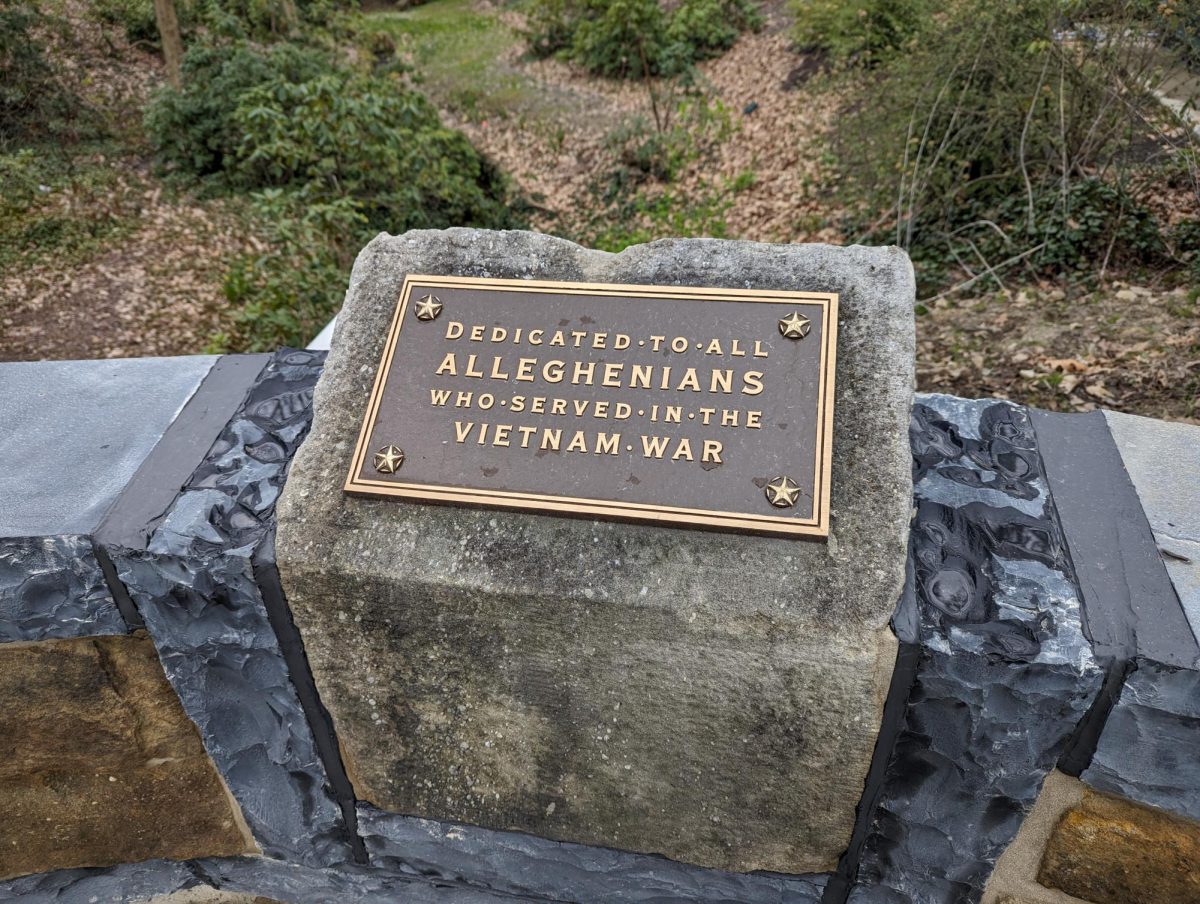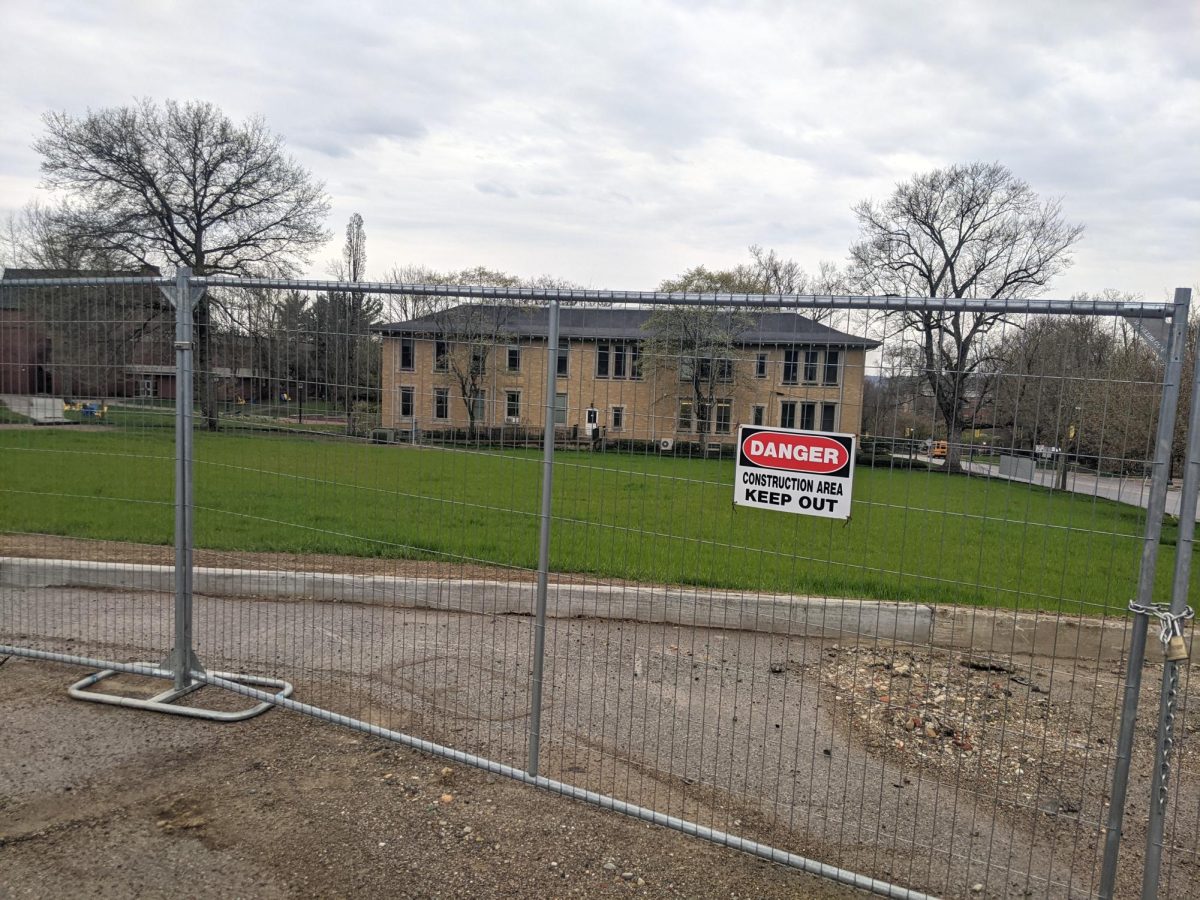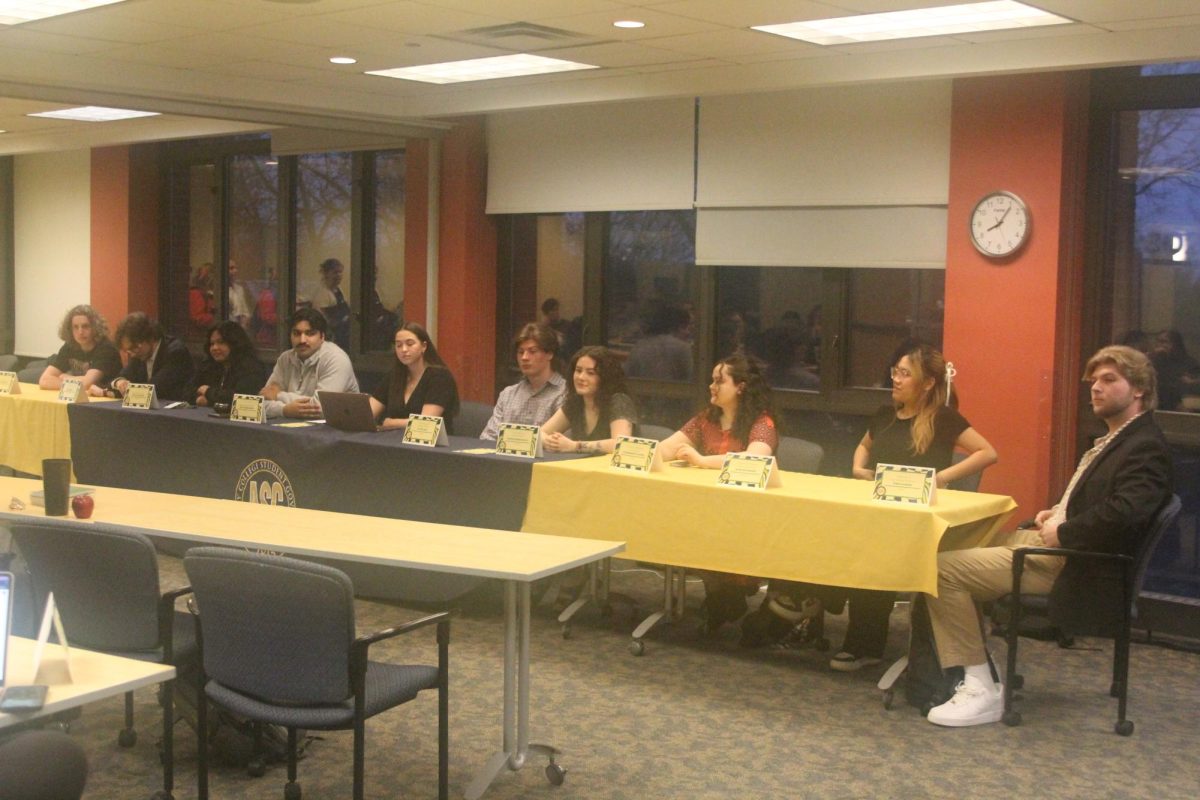By ANTON KOTELYANSKII
Contributing Writer
Glenn Sharfman opened his presentation titled, “Are you My Brother’s Keeper? Why Ordinary People Acted Extraordinarily During the Holocaust” with a simple question to the audience, “How did the [the Nazis] know who the Jews were?”
Sharfman, professor of history and vice president and dean of academic affairs at Manchester University, visited Allegheny on Thursday, Oct. 31, to give his presentation sponsored by the Department of History, Phi Alpha Theta honor society, the Jewish Studies Minor Steering Committee and Hillel.
To answer this question, Sharfman referenced a book by Chris Browning, “Ordinary Men.” Browning found that in a reserve battalion responsible for the deaths of 80,000 Jews, only 15 men chose to opt out of the unit. The men who remained in the battalion were not especially anti-Semitic. Peer pressure and obedience to authority led them to stay. If their commander told them their actions were legal, they were “much more willing to do so,” according to Browning.
Sharfman also referenced a book called “Neighbors” by Jan Gross which detailed the massacre of the Jewish population in Jedwabne, Poland, at the hands of the Catholic population. Both populations had lived there for hundreds of years, and despite tensions, there was interaction and intermarriage. But in 1941, the Jewish residents were forced into a barn that was set on fire.
Their first explanation was that they were forced to do it by the Nazis; however, the Nazis had just come into the town that day. The only two German soldiers in the town tried to stop it.
“In a small town near Auschwitz there was a man named Udo Klausa who convinced himself that he wasn’t a Nazi because he never participated in violent actions. He was a nice man, his family loved him, his town loved him. Yet, he oversaw the murder of over 22,000 people,” Sharfman said. “He was able to look himself in the mirror, able to talk to his children. It’s amazing what rationalizations can do.”
While there were many people who gave the Nazis information on the Jews, there were also many who hid them in their homes.
In Le Chambon-sur-Lignon, one of two towns collectively awarded the title “Righteous Among the Nations” by Yad Vashem, Israel’s official Holocaust memorial, farmers saved thousands of Jews.
“They were led by a pastor and his wife who encouraged their congregation to help their neighbours, even if they did not know them, or [were of different religion],” Sharfman said. “Being Christian meant helping those in need.They derived absolutely no material benefit.” During the Holocaust, there are many examples of Christians helping Jews because of their religion, and justifying turning them over for the same reason.
Others helped with less altruistic motives. For instance, Leopold Socha was a sewage inspector in Lvov, Ukraine, who hid Jews in the sewers in exchange for monthly payments.
“Like many at the time, 1940, Socha believed that Jews had killed Jesus. His wife corrects his biblical interpretation, but is [unhappy] about the risk. And at some point, I think Socha would’ve turned them in, but he was worried that he would be [complicit],” Sharfman said.
However, by the end of the war, Socha’s motives became altruistic as he got to know his “tenants” and see them as human beings. Socha continued harboring Jews after they ran out of money and could not pay.
Aaron Elster, who currently lives in Illinois, was 12 years old when he escaped from the ghetto in Sokolow Podlaski, Poland with one of his sisters. A farmer’s family hid them for the next two years, despite being filled with hatred towards Jews.
“Every day, while they fed Aaron, they had to hear this litany of complaints about Jews. ‘You’re the scum of the Earth,’ and meanwhile, each day, the food came. So what do we do with this farmer afterwards, how do we see him,” Sharfman asked. “A heroic person, who risked his life and the food out of his family’s life, or do we see him as an anti-Semite who clearly had horrible things to say about Jews?” After the war, when everyone found out that he was hiding Jews, his town brought charges against him.
“[The talk] was interesting. It was not what I thought it would be, about Hitler, Eichmann…you don’t think about it this way. It was very good,” said Brenda Metheny, building coordinator at Steffee, who attended the talk.
“It made me wonder if we’re responsible for our ignorance of issues that are going on around the world right now,” said Marissa Walter, ’17. “We’re here in America, and we’re barely doing anything about the fact that they’re having a polio outbreak in Syria, we leave it up to government organizations and then there’s also deportation of illegal immigrants that makes you wonder, if you don’t agree with policy, do you even think about if it’s right, or do you think about whether it’s legal or not.”







